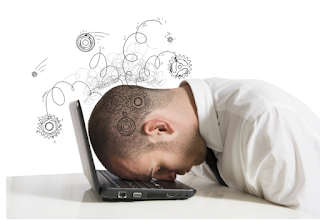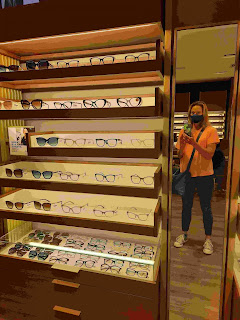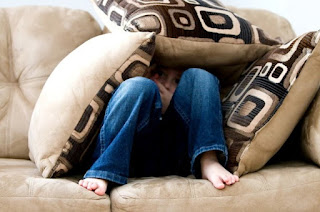I know what it's like to be stuck in a job I hate. I know what it's like to have a boss who makes my life stressful, to work long hours and feel like someone else - my employer - owns my life time. I know what it's like to work in a culture that doesn't fit my values. It sucks.
From very early in my career I was aware of the not-quite-real persona I felt obliged to adopt in workplaces. I tried to be brave, to be authentic. Sometimes that had positive effects. Sometimes it got me into hot water.
I've been self-employed now for 20 years. But until recently, I felt like I was a bit of a freak. It seemed like few others saw how much the career over-achieving cost. The idea of waiting until I retired to be fully present to my life prompted a mild sense of panic.
But most of my friends and work colleagues just kept on trucking, spending so many hours and so much head-space on their work, that all they had time for outside of that was the essentials - meeting the must-do obligations with their families, maybe doing a bit of exercise, jamming in social engagements where possible - all at a million miles an hour. Being 'busy' was worn as a badge of honour.
When they took their annual holiday (IF they took it), they'd spend the first half of it catching up on sleep or drinking copious amounts of alcohol as a reward for working so hard.
At 41 years of age, I took a three-month 'sabbatical' to step off the hamster wheel; to do......nothing. When I spoke of this, a few were envious, but many reacted with horror. The idea of doing nothing sent them into a spin. Three months went so quickly, I wished I had a year. I haven't worked full time since. And this experience is what led me to invent PAR (People Against Rushing).
Fast forward a decade or so and much of the world is emerging from a forced sabbatical courtesy of COVID 19. There are the beginnings of a widespread realization that the old way isn't so great. Many people are realizing the benefits of slowing down, enjoying the simple things, and simply being present to their lives and the people in them.
I'm in a bit of disbelief. I seriously never thought this would happen! People are coming over to the PAR perspective en masse!!
However there's a danger lurking that's always present when we've been inhabiting an extreme. The danger is that, instead of mindfully choosing a different path, we can react mindlessly to the realization that things are so out-of-whack.
Important realizations often unleash a lot of energy. Often it's the energy of grief at some kind of loss (e.g. how much of my life I've spent on something that never felt right), and that can then fuel reactivity - a mindless, automatic, emotion-fuelled reaction to discharge the unpleasant feelings.
One of these it seems, is a new Anti-work movement. At the heart of it is a positive realization that the space in our lives devoted to work is out-of-whack somehow. This insight is a great development, especially if your rights as an employee (or human being) have been trampled on or neglected, or your workplace culture is toxic. It's a good thing for employees to have power in the employment market.
But as always, mindlessness is not helpful. And if we don't respond mindfully, we let the swing of a pendulum from one extreme to another dictate the course.
I can see a couple of potential problems if we react rather than respond here. First, if what we want is for the world of work to operate with decency and respect, we need to align our own personal conduct with this principle. Ghosting potential new employers at interviews, or not turning up after accepting a new job as the article describes, is not using our power to improve the work world.
The other problem I can see is rendering the whole idea of work as undesirable. One of the aims of the anti-work forum discussed in the article is to imagine a world “with unemployment for all, not just the rich!” and it envisions a world without work. What this pendulum swings right over, is the fact that work can actually contribute greatly to our flourishing as human beings.
Besides material security, work can help meet our needs for belonging, engagement, achievement, connection, and contribution. These are all factors in a flourishing life. And many have realized this as it's been taken away during lockdowns.
In the book Ikigai, the authors studied Japanese people living some of the world's longest and most satisfying lives. One of the recommendations was to 'never retire'.
Now, of course, if you're in a toxic workplace or brain-numbing job, your work won't be helping you flourish and change might be needed. But can you use, in a mindful way, the COVID-induced insights you've had about work's role in your life?
Can you respond in a way that grounds your life more fully in your values, and what you know about human needs (for a quick assessment of your life on the Nine Human Needs, or a full Life Assessment click here)? Perhaps work-life integration is a better goal than work-life balance that pits the two against each other?
What insights have you had about work's role in your life due to the pandemic? And how are you going to use these insights to cultivate a more flourishing life? We'd love to hear from you - drop us a comment here!
Warm regards
Lenorë





